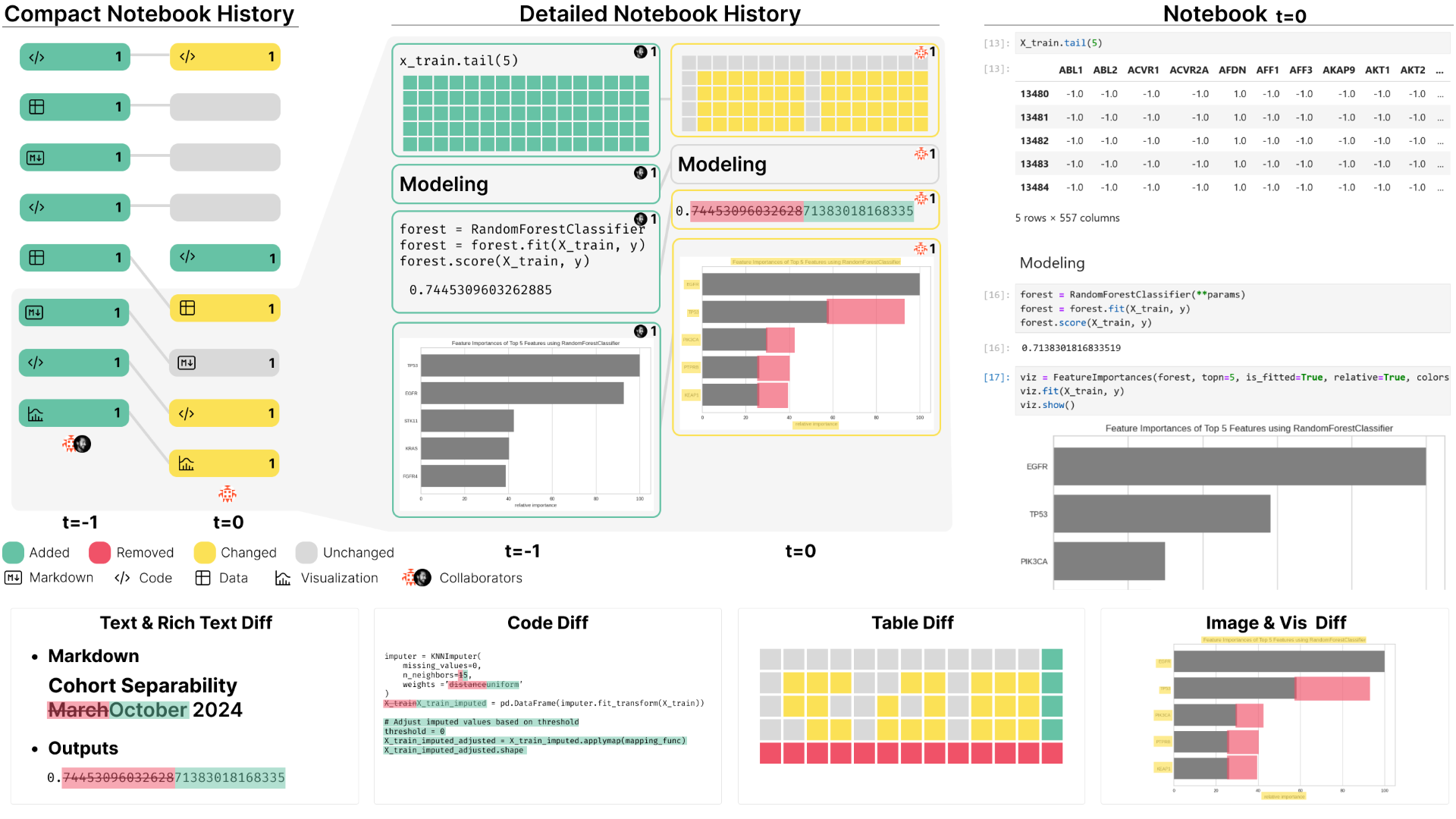Loops: Leveraging Provenance and Visualization to Support Exploratory Data Analysis in Notebooks
Klaus Eckelt - Johannes Kepler University Linz, Linz, Austria
Kiran Gadhave - University of Utah, Salt Lake City, United States
Alexander Lex - University of Utah, Salt Lake City, United States
Marc Streit - Johannes Kepler University Linz, Linz, Austria
Download preprint PDF
Download Supplemental Material
Room: Bayshore V
2024-10-16T18:09:00ZGMT-0600Change your timezone on the schedule page
2024-10-16T18:09:00Z

Fast forward
Full Video
Keywords
Comparative visualization, computational notebooks, provenance, data science
Abstract
Exploratory data science is an iterative process of obtaining, cleaning, profiling, analyzing, and interpreting data. This cyclical way of working creates challenges within the linear structure of computational notebooks, leading to issues with code quality, recall, and reproducibility. To remedy this, we present Loops, a set of visual support techniques for iterative and exploratory data analysis in computational notebooks. Loops leverages provenance information to visualize the impact of changes made within a notebook. In visualizations of the notebook provenance, we trace the evolution of the notebook over time and highlight differences between versions. Loops visualizes the provenance of code, markdown, tables, visualizations, and images and their respective differences. Analysts can explore these differences in detail in a separate view. Loops not only makes the analysis process transparent but also supports analysts in their data science work by showing the effects of changes and facilitating comparison of multiple versions. We demonstrate our approach's utility and potential impact in two use cases and feedback from notebook users from various backgrounds. This paper and all supplemental materials are available at https://osf.io/79eyn.